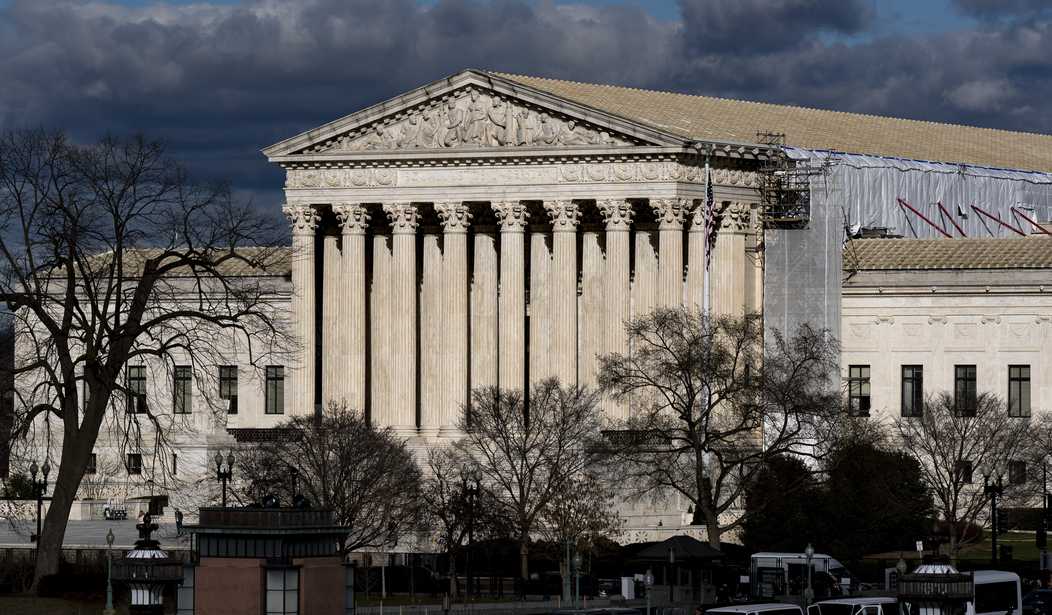The Supreme Court on Friday issued a ruling upholding a Texas law requiring pornography websites to verify that their users are 18 years old or older.
The case involves a Texas law passed in 2023 that requires adult websites to verify users' ages before allowing them to view the content. The legislation aims to protect children from inadvertently viewing harmful content. However, opponents argued that it stifles free speech.
The Court sided with Texas, noting that the law "only incidentally burdens the protected speech of adults," which means it is only subject to intermediate scrutiny, not "strict scrutiny," which would have meant that restrictions on pornographic content must be narrowly applied and be supported by a compelling government interest.
Twenty-one years ago, five black-robed justices ruled that an adults’ rights to effortlessly view hardcore pornography trumped children’s rights to childhood. Today, that ends.https://t.co/Rg8VPhZFFG pic.twitter.com/lsOdUtENyX
— Brad Littlejohn (@WBLittlejohn) June 27, 2025
The high court acknowledged that states have a long-recognized authority to restrict children's access to pornography and other types of sexually explicit content. It noted that age verification is a "common" and "appropriate means of enforcing an age-based limit on obscenity to minors." The Court further stated that "no person–adult or child–has a First Amendment right to access such speech without first submitting proof of age."
The majority opinion, authored by Justice Clarence Thomas, stated that the law "advances important governmental interests unrelated to the suppression of free speech and does not burden substantially more speech than necessary." He further pointed out that if strict scrutiny were applied to this measure, it would "call into question all age-verification requirements, even longstanding in-person requirements."
Recommended
Ultimately, "Adults have no First Amendment right to avoid age verification," according to Thomas.
Justices Elena Kagan, Sonia Sotomayor, and Ketanji Brown Jackson dissented. They argued that the law "restricts adults' access to constitutionally protected expression, in service of a goal it could accomplish in other ways."
Kagan, who authored the dissent," argued that the measure, "subjects all internet users to a dragnet: Every person in Texas must identify themselves before accessing any site covered by the statute." She further asserted that "The First Amendment does not permit this kind of overreaching regulation, even when it aims to protect children."
The bill had bipartisan support. It imposed a $10,000 per day fine for companies that violate the measure. It also mandated that the sites display warnings about the impact of pornography on mental health. After filing a lawsuit, porn distributors persuaded a court to issue an injunction on the enforcement of the law.
However, the Fifth Circuit reversed the lower court’s ruling, allowing the law to go into effect. At the time of the lawsuit, 23 states had passed similar measures.
The Free Speech Coalition, a trade association representing the adult entertainment industry, challenged the law, asserting that it infringes on people’s First Amendment rights by placing unnecessary burdens on accessing legal, constitutionally protected content.
In the Fifth Circuit’s majority opinion, Judge Jerry Smith upheld the age-verification requirement, arguing that it serves a legitimate interest in preventing children from viewing pornographic content. However, the court also upheld the lower court’s decision to strike down the health warning requirement. Smith pointed out that this requirement amounted to compelled speech, which violates the First Amendment.
In his dissenting opinion, Judge Patrick Higginbotham insisted that the law violates free speech by potentially deterring access to legal content.
The Supreme Court took up the case on July 2, 2024. It heard oral arguments on January 15, 2025. The matter centered on whether Texas’ law should be subject to “strict scrutiny” rather than “rational basis.” The adult entertainment industry argued for strict scrutiny.
The initial reactions from the justices suggested the high court might uphold Texas’ law. The six conservative justices and Justice Elena Kagan appeared to favor the age verification requirements.
The case referenced several precedents that have influenced the debate over free speech and protecting minors from potentially harmful content. The Supreme Court in 1968 upheld state laws prohibiting the sale of pornography to minors in Ginsberg v. New York.
In the case of Ashcroft v. American Civil Liberties Union II, the Court heard a lawsuit challenging the Child Online Protection Act (COPA), which was passed in 1998. This would have been a federal law requiring age verification for porn sites.
Lower courts had issued injunctions against COPA’s enforcement. In a 5-4 decision, the high court upheld the preliminary injunctions, noting that the law likely violated free speech rights. It applied strict scrutiny, deciding that the government failed to show that COPA was the least restrictive method for protecting minors.

























Join the conversation as a VIP Member